6 hrs, 4.3 kms
Day Totals: 14 hrs, 20
.3 kms
Hiking this region is a different feeling than hiking the desert river valleys out east where there's a village every 2 or three kilometres. Here I’ve walked for some 14 kilometers and only passed through one village. It’s more a hike of solitude and contemplation than a culture hike immersing yourself in ancient civilization.
Finally, around another bend, and the sheer cliffs and lush palms of Paradise Valley are spread out before me. All along the steep mountainside are randomly placed homes clinging to the steep slopes. My guess is that I should be able to find footpaths all the way to the bottom… and sure enough, working my way from house to house, I reach the base of the canyon. Here another dry waterfall catches my eye—this one must be even more spectacular than Immouzzer when it has water on it, water crashing over boulders, and sliding down smooth rock surfaces for hundreds of meters
. Even without water, it still deserves a video clip.
And then, a little ways down the road, is a sign pointing to a footpath that says "Cascade de Tifrit". OK… no hurry… let’s take our time to enjoy the sights and not just hurry through this valley. So I follow a path through the semi-terraced farm plots, down a sloped, sheer rock surface overlooking the lush palm forest and cliffs beyond… and there it is: Finally, a real waterfall.
There’s not a lot of water, but it’s beautiful, pouring down yet another “rock curtain” into a deep pool. It makes up for the disappointment of Immouzzer—especially since Tifrit Waterfall comes as a complete surprise, unlike Immouzzer which I’ve been hearing about for the last 17 years! All alone, with a waterfall behind me, the cliffs and palm trees in front of me, it does almost feel like a discovered this place… I strum a couple of songs as a fitting conclusion to a beautiful day.
A Language with no Bad Words
Typically in rural areas, public transportation dries up early on in the day, and I might already be pushing my luck
. With another 28 kilometers to go, I’m clearly not going to make it back to Aourir today, so I go ahead and try to catch a ride. Within minutes a fellow in a private vehicle stops, I figure, do to the amount of tourism there is here, I should find out how much, if anything he’s thinking of charging me. He says 30 dirhams… I offer 20… and we’re off…
As we wind down the one lane road, I can see my driver is getting more and more frustrated. See, when two cars meet on these roads, one of them has to pull off on the bumpy shoulder so the other can pass. The problem is that there’s not clear rule as to who is supposed to pull off. So usually drivers play a game of chicken—they drive at each other at full speed until one of them chickens out at the last minute and pulls off. Yep. It’s about as dangerous as it sounds… And the law of the jungle kind of applies too—smaller cars pull off for bigger cars, as obviously they’ve got more to lose if/when there’s a head on collision.
Well, my driver is clearly getting angrier and angrier as he keeps having to pull off the road
. Finally, when a big camping car does even budge from the center, forcing him to go off the road completely, it’s the straw that breaks the camels back.
“Ashkid! Ashkid!” he yells at the foreign driver. “Ashkid” means “come here” in Berber—but I suppose it might have some alternate meaning. This guy clearly wants to let off steam in his native language he knows full well the tourist can’t understand.
The foreigner, an older French guys responds with a tirade in French, including a reference to fecal matter.
Then something happens which gives me an intriguing insight into Moroccan culture… the driver switches to Arabic, responding with another reference to number 2… and then drives off in a huff.
Suddenly the thought hits me… why did he switch to Arabic? He clearly prefers Berber—and normally people express their anger much better in their native tongue. It wasn’t about communication, since the tourist didn’t understand either language
.
I ask several Moroccans about this later, and they confirm what I suspected: Moroccan Arabic is a language very rich in insulting, dirty and derogatory words… but Berber simply doesn’t have any bad words.
What?! How can a language exist for thousands of years and they not be able to come up with creative and vile ways to insult each other? That’s terrible! Can you imagine the frustration of being angry at someone, but simply not having the vocabulary to shock him with a dirty, vulgar expression?
Or could it be that this says something about their culture. Maybe they just didn’t need to insult each other… traditionally they handled their anger in other ways without needing to make reference to fecal matter, genitals or having sexual relations with one’s mother. Wow. That’s a thought… can people actually do that?!
But of course, now, with the arrival of Arabic, they’ve been blessed with another an alternative: a language with an entire dictionary of dirty words and expressions to be used at the slightest provocation…
1470. Another Waterfall
Wednesday, February 20, 2013
 Tifrit, Souss-Massa-Drâa, Morocco
Tifrit, Souss-Massa-Drâa, Morocco
Other Entries
-
82Post-visit: the Dinosaur Tomb
Feb 0614 days prior Tazouda, Moroccophoto_camera4videocam 0comment 0
Tazouda, Moroccophoto_camera4videocam 0comment 0 -
83Post-visit: The semi-oasis
Feb 0614 days prior Skoura, Moroccophoto_camera3videocam 0comment 0
Skoura, Moroccophoto_camera3videocam 0comment 0 -
841477. The Open Desert Stretch
Feb 0713 days prior Tiligiout, Moroccophoto_camera5videocam 0comment 0
Tiligiout, Moroccophoto_camera5videocam 0comment 0 -
851478. Finishing my 9th Superhike… barely
Feb 0713 days prior Lzirway, Moroccophoto_camera7videocam 0comment 0
Lzirway, Moroccophoto_camera7videocam 0comment 0 -
861479. Back to the Fascinating Mud Castle Region
Feb 128 days prior Moulay Abdellah Dakket, Moroccophoto_camera11videocam 0comment 0
Moulay Abdellah Dakket, Moroccophoto_camera11videocam 0comment 0 -
871480. A Cool Clifftop Village
Feb 128 days prior Ksar Jebil, Moroccophoto_camera13videocam 0comment 0
Ksar Jebil, Moroccophoto_camera13videocam 0comment 0 -
881481. Back to the Aoufous Valley
Feb 137 days prior Arbid, Moroccophoto_camera7videocam 0comment 0
Arbid, Moroccophoto_camera7videocam 0comment 0 -
891482. A Stroll Through the Oasis
Feb 137 days prior Blama, Moroccophoto_camera1videocam 0comment 0
Blama, Moroccophoto_camera1videocam 0comment 0 -
901483. Finishing my 10th Moroccan Superhike
Feb 137 days prior Btaha, Moroccophoto_camera15videocam 0comment 0
Btaha, Moroccophoto_camera15videocam 0comment 0 -
911484. Back to the Imperial Region
Feb 146 days prior Mechra Belhlima, Moroccophoto_camera4videocam 0comment 0
Mechra Belhlima, Moroccophoto_camera4videocam 0comment 0 -
921485. Shabby Farm Villages
Feb 146 days prior Tamzra, Moroccophoto_camera4videocam 0comment 0
Tamzra, Moroccophoto_camera4videocam 0comment 0 -
931486. A Beautiful Panorama
Feb 146 days prior Qulut, Moroccophoto_camera9videocam 0comment 0
Qulut, Moroccophoto_camera9videocam 0comment 0 -
94Post-Visit: Connecting the Ancient Cities
Feb 146 days prior Moulay Idriss, Moroccophoto_camera15videocam 0comment 0
Moulay Idriss, Moroccophoto_camera15videocam 0comment 0 -
95Postvisit Agadir: Back in the Souss Region
Feb 191 day prior Agadir, Moroccophoto_camera5videocam 0comment 0
Agadir, Moroccophoto_camera5videocam 0comment 0 -
961467. An Unfinished Town
Feb 191 day prior Aourir, Moroccophoto_camera6videocam 0comment 0
Aourir, Moroccophoto_camera6videocam 0comment 0 -
971468. An Embarrassing 17 year Delay
Feb 20earlier that day Imouzzer des Ida Ou Tanane, Moroccophoto_camera28videocam 0comment 0
Imouzzer des Ida Ou Tanane, Moroccophoto_camera28videocam 0comment 0 -
981469. Short cut across a Canyon
Feb 20earlier that day Aksri, Moroccophoto_camera21videocam 0comment 0
Aksri, Moroccophoto_camera21videocam 0comment 0 -
991470. Another Waterfall
Feb 20 Tifrit, Moroccophoto_camera18videocam 0comment 1
Tifrit, Moroccophoto_camera18videocam 0comment 1 -
1001487. A Magical Swimming Hole
Feb 211 day later Taghrat, Moroccophoto_camera64videocam 0comment 0
Taghrat, Moroccophoto_camera64videocam 0comment 0 -
1011488. The End of Paradise Valley
Feb 211 day later Tamzargout, Moroccophoto_camera11videocam 0comment 0
Tamzargout, Moroccophoto_camera11videocam 0comment 0 -
1021489. Connecting with the Agadir Superhike
Feb 211 day later Elma, Moroccophoto_camera4videocam 0comment 0
Elma, Moroccophoto_camera4videocam 0comment 0 -
103Ait Mellioul Post-visit: Connecting Elkolea
Feb 222 days later Ait Mellioul, Moroccophoto_camera0videocam 0comment 0
Ait Mellioul, Moroccophoto_camera0videocam 0comment 0 -
104Post-visit: Back to my Cocoon
Feb 222 days later Ben Sergao, Moroccophoto_camera4videocam 0comment 0
Ben Sergao, Moroccophoto_camera4videocam 0comment 0 -
1051492. Back in Morocco’s Rock Wonderland
Feb 266 days later Aguerd n’Doudad, Moroccophoto_camera43videocam 0comment 0
Aguerd n’Doudad, Moroccophoto_camera43videocam 0comment 0 -
1061493. The Painted Rocks
Feb 266 days later Tarharat, Moroccophoto_camera39videocam 0comment 0
Tarharat, Moroccophoto_camera39videocam 0comment 0 -
1071494. An A Tough Place to Live
Feb 266 days later Aït Daoud Ou Afa, Moroccophoto_camera6videocam 0comment 0
Aït Daoud Ou Afa, Moroccophoto_camera6videocam 0comment 0 -
1081495. A Tempting Side Trip
Feb 266 days later Dousdremt, Moroccophoto_camera9videocam 0comment 0
Dousdremt, Moroccophoto_camera9videocam 0comment 0 -
1091496. Singing to the Goats
Feb 266 days later Aousift, Moroccophoto_camera11videocam 0comment 0
Aousift, Moroccophoto_camera11videocam 0comment 0 -
1101497. The Last House on the Cliffside
Feb 277 days later Tasga n’Toudma, Moroccophoto_camera17videocam 0comment 0
Tasga n’Toudma, Moroccophoto_camera17videocam 0comment 0 -
1111498. Daring to Scale the Boulders
Feb 277 days later Tazoult, Moroccophoto_camera32videocam 0comment 0
Tazoult, Moroccophoto_camera32videocam 0comment 0 -
1121499. I’ll be Back
Feb 277 days later Taddart, Moroccophoto_camera13videocam 0comment 0
Taddart, Moroccophoto_camera13videocam 0comment 0 -
1131500. Unable to Wait
Mar 1927 days later Idaougdinif, Moroccophoto_camera15videocam 0comment 0
Idaougdinif, Moroccophoto_camera15videocam 0comment 0 -
1141501. An Irresistable Gorge
Mar 1927 days later Amezdou Khsane, Moroccophoto_camera22videocam 0comment 0
Amezdou Khsane, Moroccophoto_camera22videocam 0comment 0 -
1151502. Discovering a Waterfall
Mar 1927 days later Tudma, Moroccophoto_camera18videocam 0comment 0
Tudma, Moroccophoto_camera18videocam 0comment 0 -
1161503. Why would people want to live here?
Mar 1927 days later Anamr, Moroccophoto_camera31videocam 0comment 0
Anamr, Moroccophoto_camera31videocam 0comment 0 -
1171504. Hike through Middle Earth
Mar 1927 days later Fasaoun, Moroccophoto_camera25videocam 0comment 0
Fasaoun, Moroccophoto_camera25videocam 0comment 0
Comments
2025-05-23
Comment code: Ask author if the code is blank

 Tifrit, Souss-Massa-Drâa, Morocco
Tifrit, Souss-Massa-Drâa, Morocco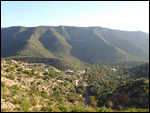
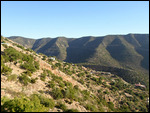
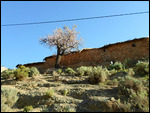
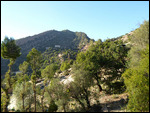
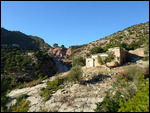

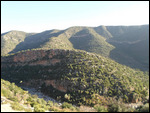
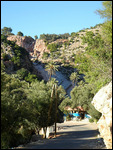
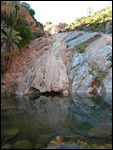
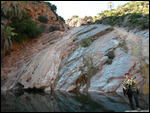
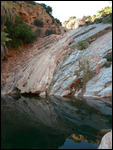
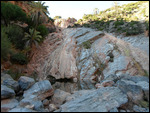
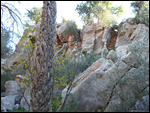
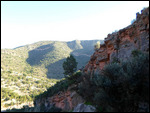
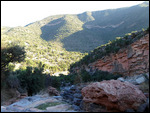
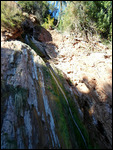
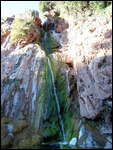
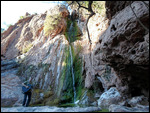
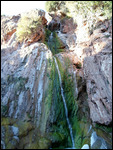
Rebecca Phillips, Mom
2013-10-12
I thoroughly enjoyed traveling with you on your farewell journeys through Morocco. Your way of writing allows one to participate in the travel so much as to almost feel worn out at the end from such a very long hike... The photos help to make the adventure with you complete. Truly Morocco is a fascinating and lovely land and people. Thanks for sharing them with us.